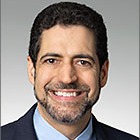Will the Federal Court Address Whether We Were at War with al Qaeda Prior to 9/11?
In Al Nashiri v. Obama, a panel of the D.C. Circuit appeared to be leaning toward allowing the federal courts to address when hostilities began with al Qaeda. Al Nashiri is challenging the authority of the Guantánamo military commissions to try offenses that pre-dated the September 11 attacks. Specifically, Nashiri is charged with complicity in the bombing on the USS Cole in 2000, and an earlier attempted bombing, that year, of the USS The Sullivans.
Published by The Lawfare Institute
in Cooperation With

In Al Nashiri v. Obama, a panel of the D.C. Circuit appeared to be leaning toward allowing the federal courts to address when hostilities began with al Qaeda. Al Nashiri is challenging the authority of the Guantánamo military commissions to try offenses that pre-dated the September 11 attacks. Specifically, Nashiri is charged with complicity in the bombing on the USS Cole in 2000, and an earlier attempted bombing, that year, of the USS The Sullivans. He argued that the military commission is unauthorized by statute because the Military Commissions Act limits the commission to hearing war crimes occurring after the commencement of hostilities. Nashiri argues that this did not occur until 9/11 or when Congress thereafter passed the AUMF.
To pull the plug on the military commission against him (which have been stayed on other grounds), Nashiri brought a habeas action in district court and sought a preliminary injunction. The district court (Judge Roberts) denied the injunction. The court held that “traditional principles of comity and judicial economy support abstaining from exercising equitable jurisdiction over Al Nashiri’s habeas petition while his military commission trial is pending.” Nashiri then appealed to the D.C. Circuit and also asked that Court for a writ of mandamus (declaring that the military commission acted beyond the scope of its powers).
At oral argument in the D.C. Circuit Wednesday – before Judges Tatel, Griffith and Sentelle – Nashiri’s arguments appeared to be faring better. The judges all seemed to agree that mandamus relief was not appropriate here. Such relief is limited to situations where the exercise of authority is indisputably unlawful. Judge Tatel made plain that, while the question of when hostilities began was a close one, it was not indisputably clear. So, don’t expect any writ of mandamus to be issued by the court of appeals.
Judge Tatel, however, appeared very skeptical that a federal court should abstain from deciding the question of when hostilities began and whether the military commission acted beyond the authority granted it by Congress. Judge Tatel said that there was no reason to defer to the military or military commission on the issue of when hostilities began. Indeed, he said such deference would be inappropriate. And neither Judge Griffith nor Judge Tatel saw any reason why the federal court should wait for the final rulings of the commission or the Court of Military Commission Review. Counsel for the government, Joseph Palmer, struggled mightily to explain why abstention would be proper. He admitted abstention was not required and could cite no appellate case where such abstention was applied in a context not involving a service member. Judge Tatel made clear that none of the military abstention factors applied and emphasized that Congress had not set up the military commission as a self-contained system, wholly separate from the federal courts. And Judge Tatel perceived no real risk to the military commission system by permitting federal review now.
Judge Sentelle also seemed inclined against abstention, asking Mr. Palmer to outline what should happen if abstention is denied. Judge Sentelle did suggest that Nashiri might still, however, fail in obtaining injunctive relief because any adverse commission ruling could be appealed, ultimately, to the D.C. Circuit, which could later review this jurisdictional threshold issue then.
The oral argument suggests that the appellate court will likely send the case back to the district court for it to possibly address the thorny question of when military hostilities with al Qaeda commenced.
The bigger issue is one of competence to decide such critical “lawfare” questions. If the courts are deemed competent to decide when hostilities began, and as Judge Tatel strongly suggested, will offer no deference to the military or Executive on that issue, it raises the prospect that the courts will someday soon deem themselves competent to decide the corollary question of when the hostilities end. That question is key to all of the detention power being exercised at Guantanamo, as to all of the detainees there. So, that a federal court may feel comfortable addressing these sorts of issues is of great interest and importance.


.jpg?sfvrsn=d5e57b75_7)

